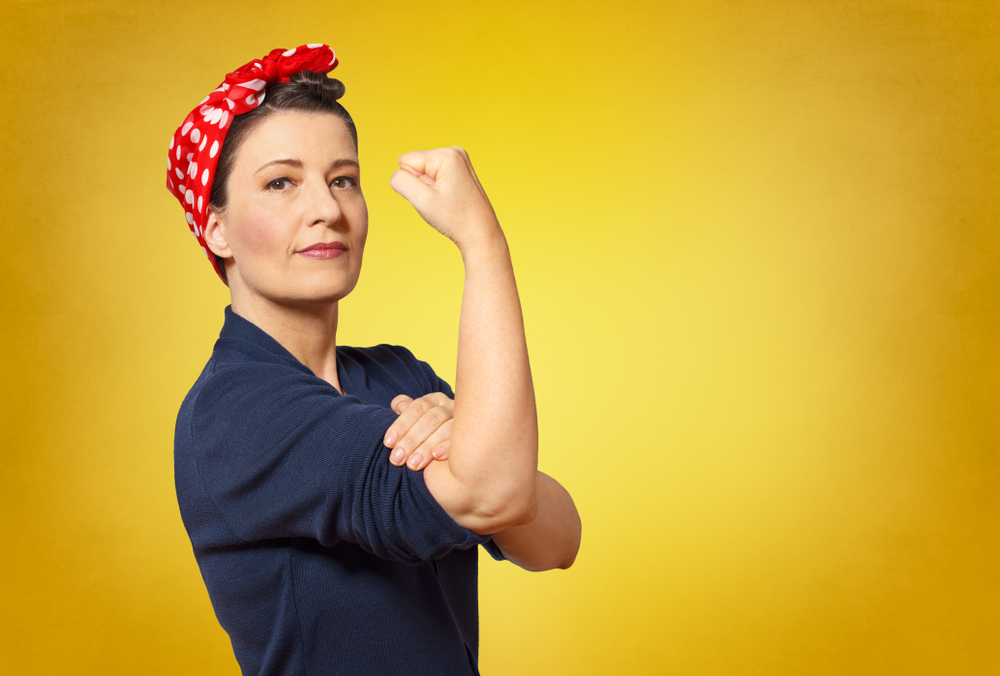Historical Context of Women Breaking Barriers

The journey of women towards equality is a long and arduous one, marked by countless struggles and triumphs. From the pioneering suffragettes who fought for the right to vote to the modern-day activists who advocate for equal pay and representation, women have consistently challenged societal norms and pushed for their rightful place in society. This historical context sheds light on the evolution of women’s rights and the factors that have shaped their progress.
Social, Political, and Economic Factors Influencing Women’s Rights
The advancement of women’s rights has been influenced by a complex interplay of social, political, and economic factors. Societal norms and cultural values have often served as barriers to women’s empowerment, perpetuating traditional gender roles and limiting their opportunities. However, social movements, political reforms, and economic changes have gradually chipped away at these barriers, creating space for women to claim their rightful place in society.
- Social Movements: Movements like the women’s suffrage movement, the feminist movement, and the LGBTQ+ rights movement have played a pivotal role in raising awareness about gender inequality and advocating for legal and social reforms. These movements have mobilized women and their allies to challenge discriminatory practices and demand equal rights.
- Political Reforms: Legal reforms, such as the passage of women’s suffrage laws, the enactment of anti-discrimination legislation, and the implementation of affirmative action policies, have been instrumental in advancing women’s rights. These reforms have created a legal framework that prohibits discrimination based on gender and promotes equal opportunities.
- Economic Changes: The rise of industrialization and the expansion of the workforce have created opportunities for women to participate in the economy. While women often faced lower wages and limited career options, their increasing participation in the workforce has challenged traditional gender roles and contributed to economic independence.
Women Who Faced and Overcame Obstacles
Throughout history, countless women have faced significant obstacles in their pursuit of equality. They have defied societal expectations, broken down barriers, and inspired generations to come. These women have demonstrated resilience, courage, and a unwavering commitment to justice.
- Susan B. Anthony and Elizabeth Cady Stanton: These pioneering suffragettes dedicated their lives to the fight for women’s right to vote. They organized rallies, wrote pamphlets, and campaigned tirelessly, paving the way for the eventual passage of the 19th Amendment in 1920, granting women the right to vote.
- Rosa Parks: This African American civil rights activist refused to give up her seat on a bus to a white man in Montgomery, Alabama, sparking the Montgomery bus boycott and igniting the Civil Rights Movement. Parks’ act of defiance challenged racial segregation and inspired millions to fight for equality.
- Marie Curie: This groundbreaking scientist overcame significant obstacles as a woman in the scientific field. She was the first woman to win a Nobel Prize, the first person and only woman to win the Nobel Prize twice, and the only person to win the Nobel Prize in two different scientific fields. Curie’s achievements challenged gender stereotypes and inspired countless women to pursue careers in science.
Women Breaking Barriers in Different Sectors

Womens breaking – Throughout history, women have consistently challenged societal expectations and fought for equality in various fields. This journey of breaking barriers has led to remarkable achievements in diverse sectors, transforming the landscape of business, politics, science, and sports. This section delves into the significant strides women have made in these areas, highlighting the challenges they have faced and the impact of their contributions.
Business
The business world has witnessed a gradual shift in the representation of women in leadership roles. While challenges remain, women have made significant progress in breaking down barriers in various sectors.
- Increased Representation in C-Suite Roles: The number of women holding senior management positions, including CEOs, CFOs, and COOs, has steadily increased over the past few decades. This progress is attributed to various factors, such as increased access to education, mentorship programs, and a growing awareness of the importance of diversity in leadership.
- Growth of Women-Owned Businesses: The number of women-owned businesses has grown exponentially in recent years. This trend is driven by a combination of factors, including government support programs, access to funding, and the increasing entrepreneurial spirit among women.
- Impact of Women in Leadership: Studies have shown that companies with a higher percentage of women in leadership roles tend to perform better financially. Women leaders often bring a different perspective to decision-making, fostering innovation, collaboration, and a more inclusive work environment.
Politics
The political landscape has traditionally been dominated by men, but women have steadily challenged this status quo. Their participation in government has increased significantly, demonstrating their commitment to shaping policies and representing diverse voices.
- Increased Representation in Legislatures: The number of women serving in national and regional legislatures has increased considerably worldwide. This progress is attributed to various factors, including the rise of women’s suffrage movements, political reforms, and the growing recognition of the importance of gender representation in government.
- Rise of Women Leaders: Several countries have elected women as heads of state and government, demonstrating the growing acceptance of women in top political positions. These women leaders have made significant contributions to shaping policies and addressing issues that directly impact the lives of women and girls.
- Impact of Women in Politics: The presence of women in politics has led to a more diverse range of perspectives and policies. Women politicians have been instrumental in advocating for issues such as gender equality, education, healthcare, and social justice.
Science
For centuries, science has been a male-dominated field, but women have consistently challenged this narrative. Their contributions to scientific advancements have been groundbreaking, leading to significant discoveries and innovations.
- Increased Representation in STEM Fields: The number of women pursuing careers in science, technology, engineering, and mathematics (STEM) fields has increased considerably in recent years. This progress is attributed to various factors, including initiatives to encourage girls’ participation in STEM education, mentorship programs, and the growing recognition of the importance of diversity in scientific research.
- Groundbreaking Discoveries: Women scientists have made groundbreaking discoveries in various fields, from medicine and physics to astronomy and biology. Their contributions have significantly advanced our understanding of the world and have led to life-saving innovations.
- Impact of Women in Science: The presence of women in science has fostered a more inclusive and collaborative research environment. Women scientists bring unique perspectives and experiences to research, leading to innovative solutions and a broader range of scientific inquiry.
Sports, Womens breaking
Sports have traditionally been viewed as a male domain, but women athletes have shattered these stereotypes, achieving extraordinary feats and inspiring generations. Their determination and talent have revolutionized the sporting landscape.
- Increased Participation and Recognition: The participation of women in sports has increased significantly over the past few decades. This progress is attributed to factors such as the development of women’s sports leagues, increased media coverage, and the growing recognition of women’s athletic abilities.
- Breaking Records and Achieving Excellence: Women athletes have consistently broken records and achieved excellence in various sports, proving their physical prowess and competitive spirit. Their achievements have challenged gender stereotypes and inspired countless young girls to pursue their athletic dreams.
- Impact of Women in Sports: The presence of women in sports has led to a more inclusive and diverse sporting landscape. Women athletes have become role models for young girls, inspiring them to embrace their athletic potential and challenge gender norms.
Challenges and Strategies for Women Breaking Barriers: Womens Breaking
The journey towards gender equality is far from over. Women continue to face significant challenges in various spheres of life, from the workplace to politics and beyond. These challenges, rooted in deeply ingrained societal norms and systemic biases, hinder women’s progress and limit their full potential. However, there is a growing movement advocating for women’s empowerment and promoting strategies to overcome these obstacles.
Addressing Persistent Challenges
Persistent challenges faced by women include:
- Gender Pay Gap: Despite progress, a significant gap persists in earnings between men and women. Women often earn less than men for similar work, reflecting the impact of gender bias and discrimination in pay negotiations and career advancement.
- Underrepresentation in Leadership: Women are underrepresented in leadership positions across various sectors, including corporate boards, government, and academia. This lack of representation limits their influence in decision-making processes and perpetuates gender inequality.
- Unpaid Care Work: Women disproportionately bear the burden of unpaid care work, such as childcare and elder care. This responsibility often limits their career opportunities and contributes to their economic disadvantage.
- Violence and Harassment: Women continue to face violence and harassment, both in public and private spaces. This pervasive issue creates a climate of fear and insecurity, impacting their well-being and limiting their freedom of movement and participation.
Empowering Strategies and Initiatives
Numerous strategies and initiatives are being implemented to empower women and accelerate their progress:
- Education and Skills Development: Investing in girls’ education and providing them with access to quality education and skills training is crucial for their economic empowerment and social mobility.
- Mentorship and Networking: Mentorship programs and networking opportunities can provide women with guidance, support, and connections to help them advance in their careers.
- Policy Reforms: Implementing policies that promote gender equality, such as equal pay legislation, affordable childcare, and flexible work arrangements, can create a more equitable environment for women.
- Advocacy and Awareness Raising: Raising awareness about gender inequality and advocating for women’s rights are essential to challenge societal norms and promote systemic change.
The Role of Education, Mentorship, and Advocacy
- Education: Education plays a pivotal role in empowering women. It equips them with knowledge, skills, and critical thinking abilities, enabling them to challenge gender stereotypes and advocate for their rights.
- Mentorship: Mentorship programs provide women with guidance, support, and role models, helping them navigate challenges, develop their skills, and build confidence. Mentors can offer valuable insights, advice, and connections, accelerating their career growth.
- Advocacy: Advocacy organizations and initiatives raise awareness about gender inequality, advocate for policy changes, and provide support to women facing discrimination. By amplifying women’s voices and advocating for their rights, these organizations contribute to creating a more just and equitable society.
The breaking of barriers by women in leadership roles is a testament to their resilience and determination. Dolton Mayor Tiffany Henyard, a trailblazer in her own right, exemplifies this spirit as she navigates the challenges of leading a diverse community.
Her commitment to progress inspires other women to pursue their aspirations and contribute to a more equitable future. As women continue to break down these barriers, they pave the way for a more inclusive and prosperous society for all.
The fight for women’s rights transcends borders, encompassing diverse struggles for equality and liberation. In the Middle East, the ongoing conflict between Iran and Israel, a history marked by tensions and proxy wars , further complicates the fight for women’s breaking free from societal constraints.
This complex geopolitical landscape often overshadows the vital work of women’s rights advocates within both nations, who continue to push for progress and empowerment despite the challenges.